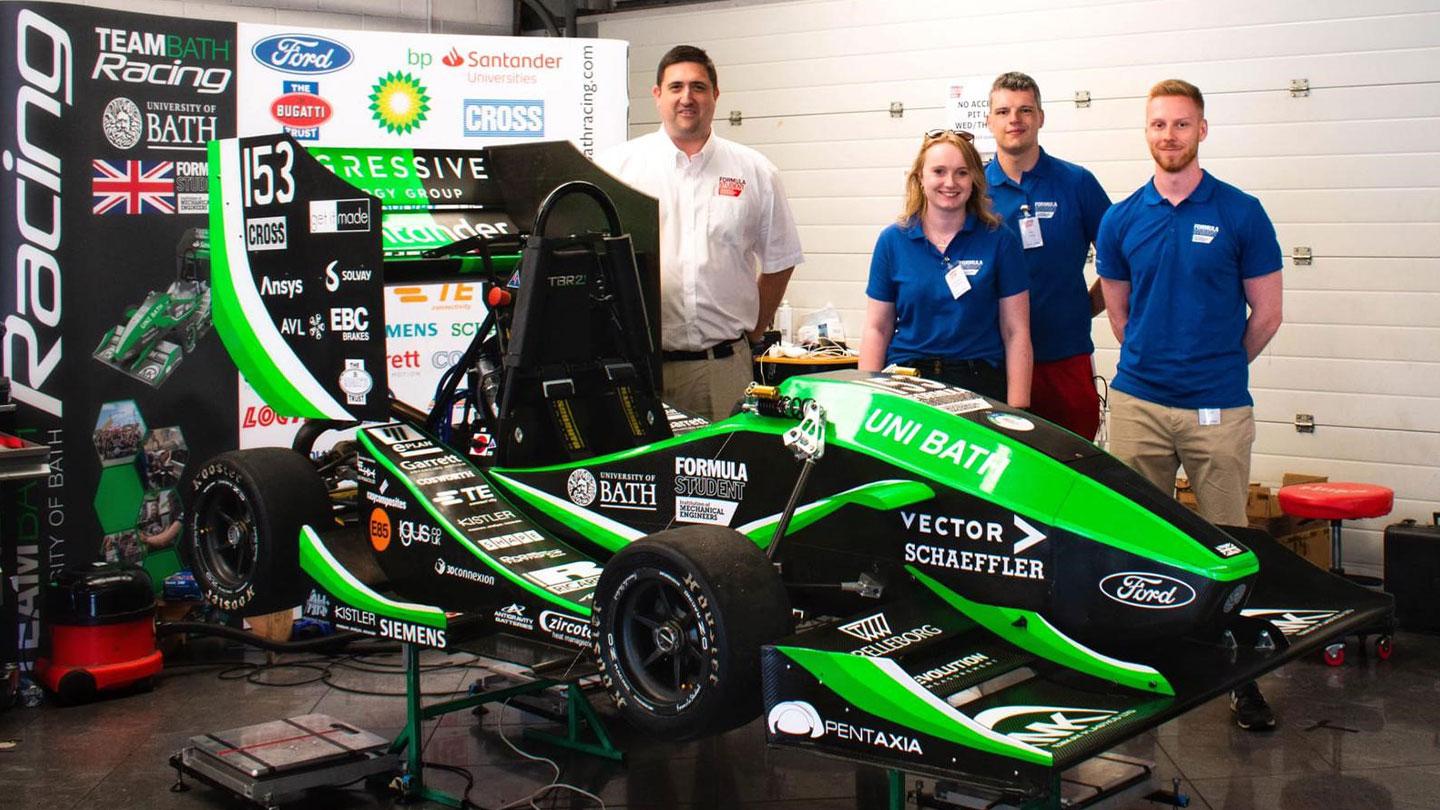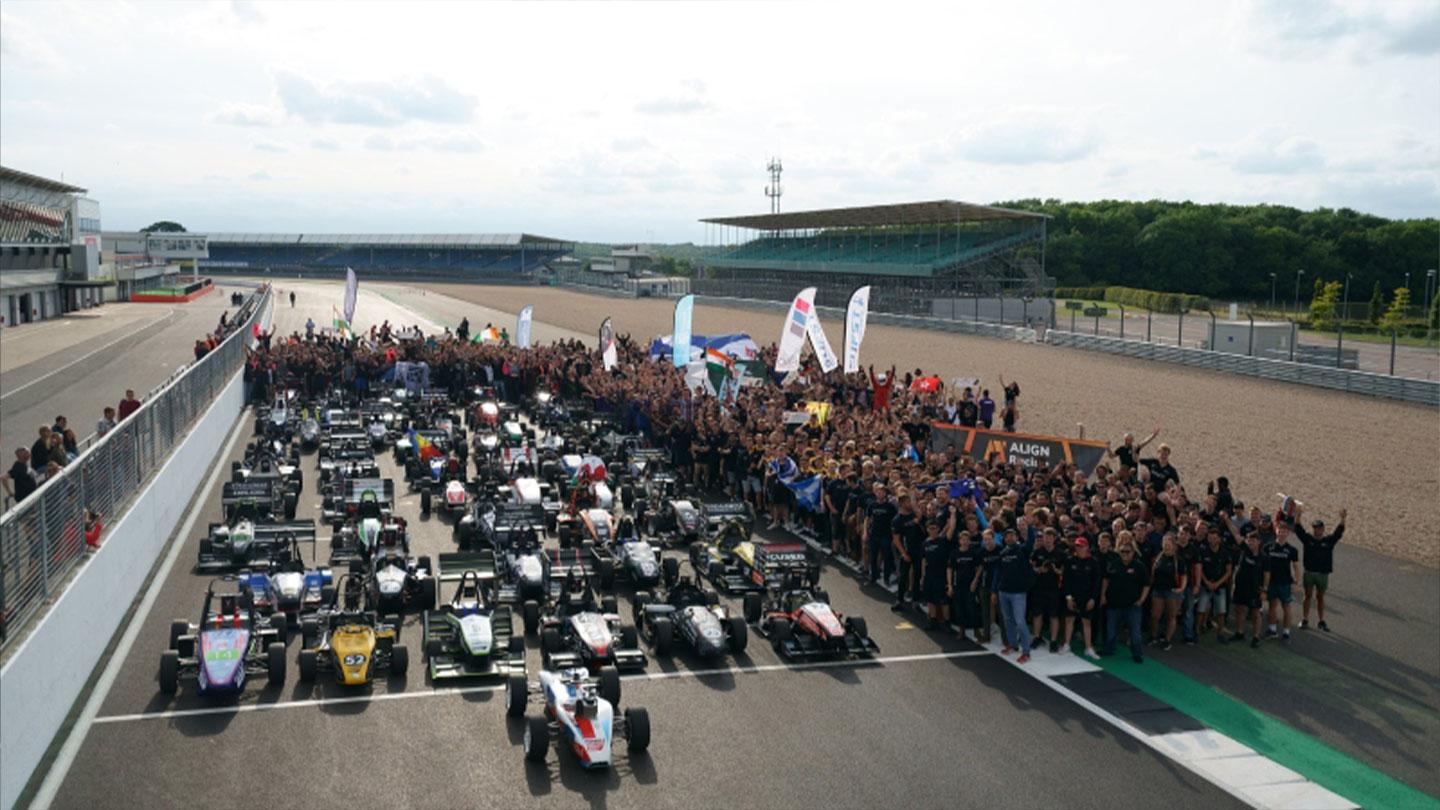KBR Supports Future Engineers at Formula Student Competition
KBR was proud to support this year’s Institute of Mechanical Engineers (IMechE) Formula Student competition, which returned to the home of British Motorsport at Silverstone race circuit, for the first time in two years.
Formula Student (FS), commonly referred to as “Formula SAE” in the US, is an engineering competition that brings together future engineers across multiple industries. Students create a ‘formula-style’ vehicle capable of meeting technical scrutineering, safety and performance tests, which is then assessed by volunteer judges across design, cost, business and dynamic categories.
The event blends together innovation, technology, commercial acumen, and the UK’s leading universities to combine practical engineering experience with soft skills including business planning and project management.
John Dangerfield, head of contract management for KBR’s Government Solutions EMEA business, competed in the 2002 Formula Student as part of his engineering degree at Brunel University, placing third overall. Since then, John has been integral to the running of the annual competition by volunteering in his spare time as the Head Cost & Manufacturing Judge. For 2021, John looked to some of his colleagues to support the cost judging of Formula Student, inviting KBR’s Sam Shea, Danielle Noyland and Matthew Lowe along to the Silverstone event for a behind-the-scenes experience.
“Formula Student is such a wonderful event and a magnificent opportunity for both students and industry volunteers,” said Dangerfield. “Bringing in specialists from organizations like KBR helps to bridge the gap between academia and the real world. At the same time, it allows companies that support this event to identify the very best of the next generation of professionals and entice them work with us while promoting our own projects.”
The judges’ roles were two-fold: firstly, to assess the quality of the teams’ submissions across various categories, including presentation quality, cost engineering and value for money; and secondly to provide the students with valuable feedback to take into next year’s car and their professional careers post-graduation.
Many judges carry decades of experience from industry backgrounds, including Bentley Motors, Ford, and McLaren F1, providing the students with critical insights into how companies operate and deliver profitable projects.
Entries this year were diverse and explored the limits of innovation with teams entering internal combustion or electric-powered vehicles with no regulations beyond that of safety. This results in creative aerodynamics, unique braking systems and imaginative chassis designs. A separate class for artificial intelligence (AI) vehicles has been established for Formula Student, where a vehicle capable of making decisions autonomously without human interference can be entered. In the acceleration tests, some vehicles recorded a 0-62mph time of less than 1.8 seconds.
With the challenges and obstacles created by the COVID-19 pandemic, many students had not been able to physically work on their cars during the last 18 months due to restrictions, leaving a much shorter window than usual for development. This led many teams to collaborate across academic years, drawing on experiences from undergraduates, post-graduates and research students to engineer a vehicle under difficult circumstances.
Teams fund the development of their vehicles through a variety of routes: some have grants from their university, others seek sponsorships from industry partners. Whilst budgets can vary, Formula Student is designed to assess the return on investment of any funding through the cost judging. No matter the scale of a team’s budget, cost judges sought to understand how value for money was secured at each stage of design and manufacture, awarding additional points for considerations such as sustainability, social impact, and proactive budget management.
"As someone with a keen interest in Formula One, but with a commercial background rather than an engineering one, the FS event presented a unique opportunity to understand more about how cars are designed and engineered with business modelling in mind,” said Matt Low, Category Manager, Government Solutions EMEA. “Across the four days I worked with a variety of professionals from numerous industries and enjoyed analyzing the students' commercial business plans. I'm already looking forward to going back next year!”
At KBR, we’re committed to giving back to the industries we serve by supporting the next generation of future engineers.





